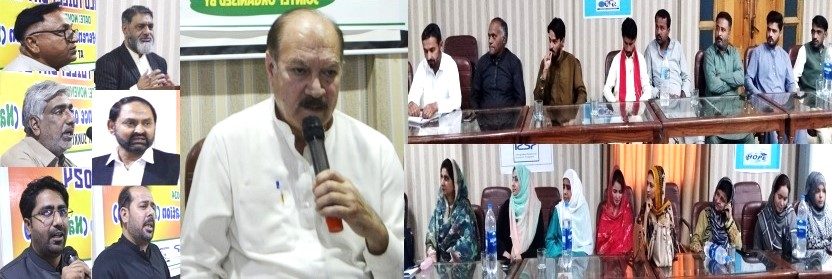
By Imtiaz Hussain
SUKKUR: On the occasion of World Toilet Day, a National Sanitation Conference was held at a local hotel in Sukkur, bringing together experts, civil society representatives, environmentalists, and leaders of social organizations. The event underscored the critical challenges Pakistan faces regarding wastewater disposal and access to clean drinking water, with calls for the immediate implementation of the National Policy on Sanitation and Water to meet the Sustainable Development Goals (SDGs).
The conference, organized by the Fresh Water Action Network South Asia-Pakistan, Khairpur Rural Development Organization, Integrated Regional Support Program (IRSP), and Hope Organization, served as a platform for stakeholders to voice their concerns and propose actionable solutions. Speakers highlighted the alarming state of sanitation across the country, emphasizing that a significant portion of Pakistan’s population lacks access to clean drinking water and adequate sanitation facilities. The resulting unsanitary conditions contribute to a surge in waterborne diseases in both urban and rural areas.
Syed Shah Nasir Khisro, Executive Director of the IRSP, called on the governments of Sindh, Punjab, Balochistan, and Khyber Pakhtunkhwa to expedite the approval of the draft policy on clean drinking water and sanitation, which has been pending since the 2006 Conference on Sustainable Development. He urged for its immediate implementation, describing it as a crucial step toward achieving the SDG targets by 2030. The conference concluded with a unified demand for federal and provincial governments to prioritize sanitation and clean water policies, stressing the need for collaborative efforts to address the crisis and safeguard public health.



